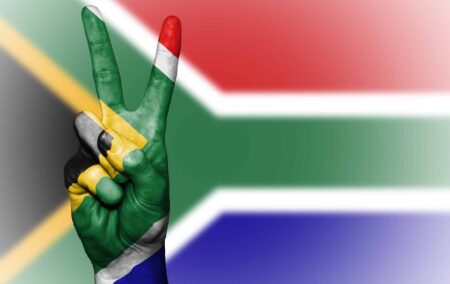How should the Multi-Party Charter supporters go about rebuilding South Africa should they win? It is a question well worth examining.
I would argue that the fundamental problem in South Africa is a lack of social trust or, put another way, we are a society which has incredibly low trust and therefore a society which does not have consensus around any basic way in which to fix things and move forward. Part of this, I believe, is that far too many people in our society have very little skin in the game and feel invisible and marginalized, and so either end up not voting and participating, or they become all too easy to manipulate by those who have access to centralized state power.
To rebuild trust in our society I believe a tipping point of people must start to feel empowered, but also to understand that our fates in some way need to be tied together. People are far more likely to police poor behaviour from other people if they believe those who behave poorly are sabotaging their own progress. As ugly as vigilantism is in South Africa, it is a communal response that can be harnessed within the framework of law and order in a functioning state.
In other words, communities will impose social punishments on those who behave poorly, if institutions like the police and courts and local government function properly and are manned by competent and largely honest people.
Skin in the game
One way to build social trust in South Africa is to tie the fates of a diverse number of people together. One way to do this across racial and class lines is through a school-voucher system (something I often advocate for in articles) where parents of every kind can feel as if their children have a shot at a better life away from rapacious teacher unions and corrupt and absent schoolteachers and administrators. Human nature being what it is, giving working class and poor parents choices for their children in the same way as middle- and upper-class parents will go a long way in making marginalized people feel as though the system is for them and their children too.
A well-thought-out plan to transition towards a voucher-based system is key for the multi-party charter, especially as it supports a decentralized system of governance. People are more likely to vote if they think that it will result in a system that has empowered them and their children for the future. It will also undermine the politics of envy that are often pushed by the likes of the EFF. People who understand and have tangible examples of their own self-interest can be trusted to vote.
A rebuilding of the public health system buttressed by vouchers could be another way to fortify this ‘skin in the game’ approach. I suspect that a majority of South Africans do not object to a universal healthcare system, they object to a cadre-filled, ANC-run healthcare system that diminishes quality care while heightening cost. Again, people can be relied upon to vote and defend sound public goods across racial and class lines if those goods are beneficial.
A system for everyone:
The Multi-Party Charter has also promised to do away with cadre deployment. That is an excellent start, but it must extend to an unwavering commitment to hiring people based on suitability for a specific role and competence for professional public service. Not only must the charter prioritize policy that will lead to economic and job growth but it must also introduce a system in which everyone pays in and everyone benefits. The system should be localized so that it is agile and can respond to local needs rather than the whims of unaccountable national politicians.
Military service, why not?
As unpopular as it might be in some quarters, it seems prudent to me to bring back a year of military service for every able-bodied and capable South African, built around an ethos of nationalistic pride. This, combined with a civic pride in a “skin in the game” schooling and healthcare system would redirect our human impulses towards national identity rather than race or class or gender or sexual orientation.
South Africa needs a commitment to a broader identity undergirded by sound, functional, and agnostic institutions that lead to opportunity and the chance for all South Africans to provide for themselves and their dependants.
South Africa needs a truly non-racial social compact in which more and more people have skin in the game and incentives to make that compact work. A diverse society like ours either has the option of splintering and becoming a great deal poorer, or pulling together under a broader identity that can lead to social trust built around reliable and sound institutions. That is the real challenge for the Multi-Party Charter, should they win.
The views of the writer are not necessarily the views of the Daily Friend or the IRR
If you like what you have just read, support the Daily Friend

